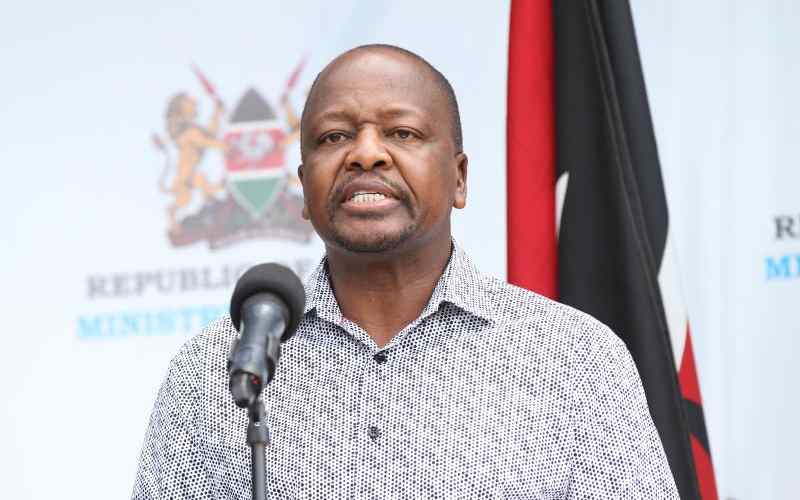×
The Standard e-Paper
Fearless, Trusted News

Health Cabinet Secretary Mutahi Kagwe during his briefings at the Ministry of Health, Afya House, Nairobi. [Elvis Ogina, Standard]
Some 261 people have tested positive for coronavirus in Kenya in the last 24 hours.